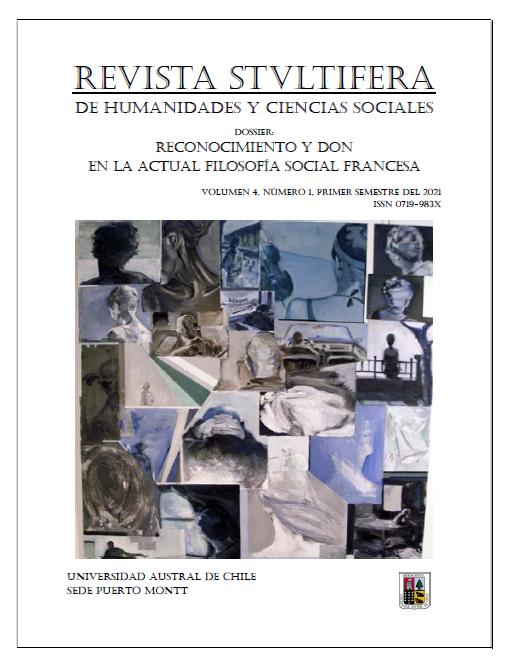Asymmetrical contexts of power, experiences of injustice, and social suffering
Main Article Content
Abstract
Different trends and European and Latin American traditions have advanced in the elaboration of a critical theory that elucidates theoretical-practical questions that refer to the links between social suffering and experiences of injustice. For these thinkers, a theory of recognition and justice requires discussing the way in which economic, political and cultural power —asymmetrically distributed— generates forms of contempt and negative experiences and suffering in many subjects and communities. In this endeavor, Emmanuel Renault's theory of recognition stands out, and especially the contribution to the psychosocial study of "experiences of injustice", which we are going to describe through different concepts that allow
them to be broken down and explained, at the same time that we will point out their limits and emancipatory potentialities. We will analyze this approach to negative experiences in a dialogue with the Frankfurt proposals also present in current critical thinking.
Article Details
Usted es libre de compartir (copiar y redistribuir el material en cualquier medio o formato) y adaptar (remezclar, transformar y construir sobre el material). El licenciante no puede revocar estas libertades siempre y cuando usted siga los términos de la licencia.
La licencia se da bajo los siguientes términos:
Atribución: debe dar el crédito adecuado, proporcionar un enlace a la licencia e indicar si se realizaron cambios. Puede hacerlo de cualquier manera razonable, pero no de ninguna manera que sugiera que el licenciante lo respalda a usted o a su uso.
No comercial: no puede utilizar el material con fines comerciales.
Sin restricciones adicionales: no puede aplicar términos legales o medidas tecnológicas que restrinjan legalmente a otros de hacer cualquier cosa que la licencia permita.


 http://orcid.org/0000-0003-4765-1567
http://orcid.org/0000-0003-4765-1567